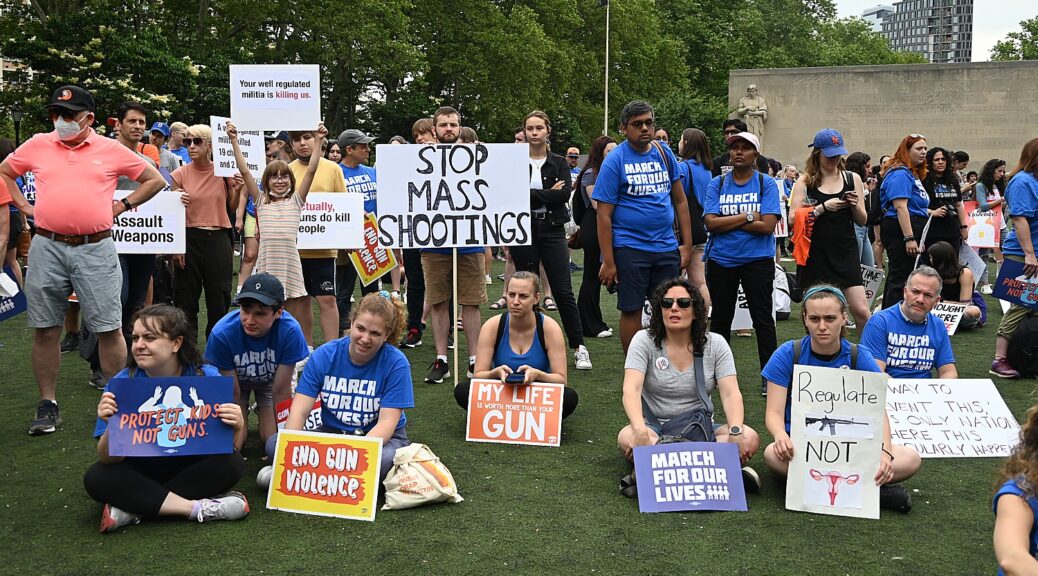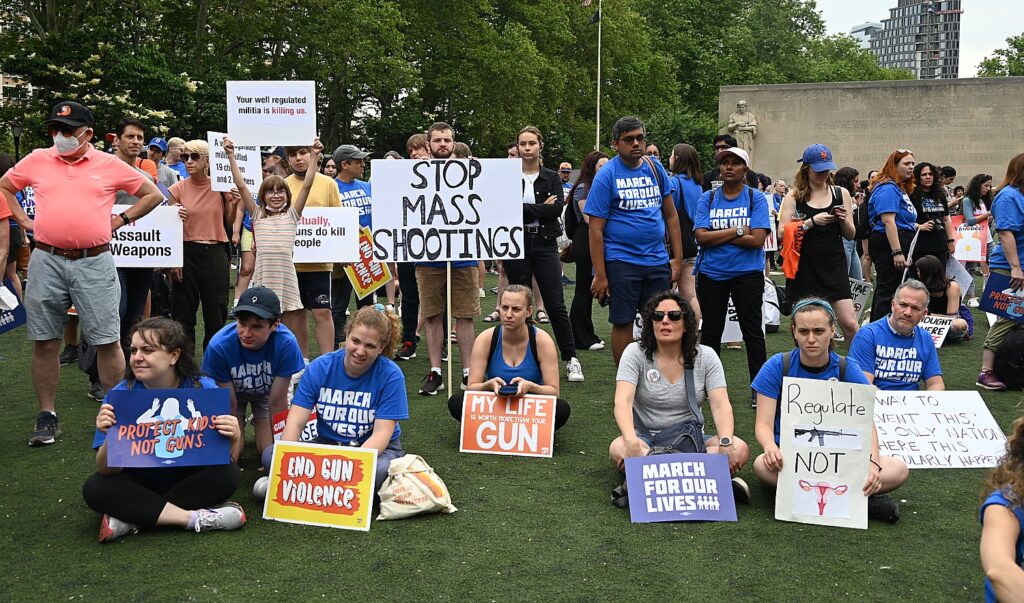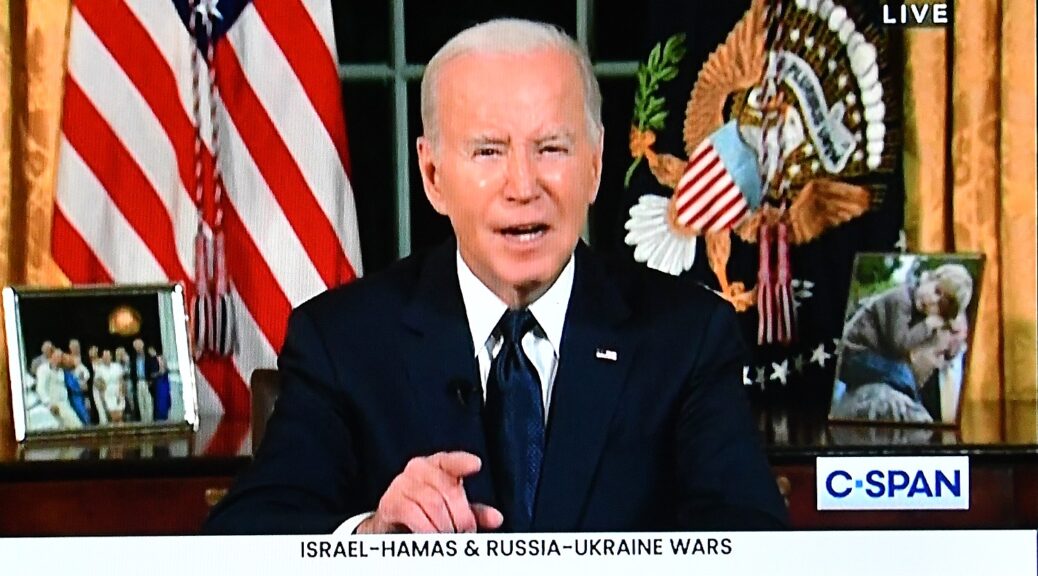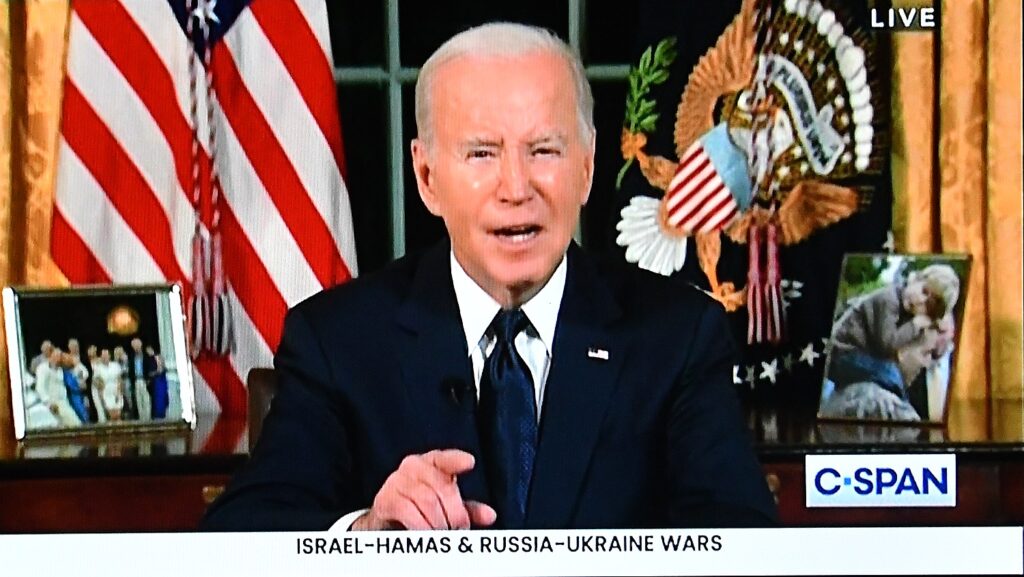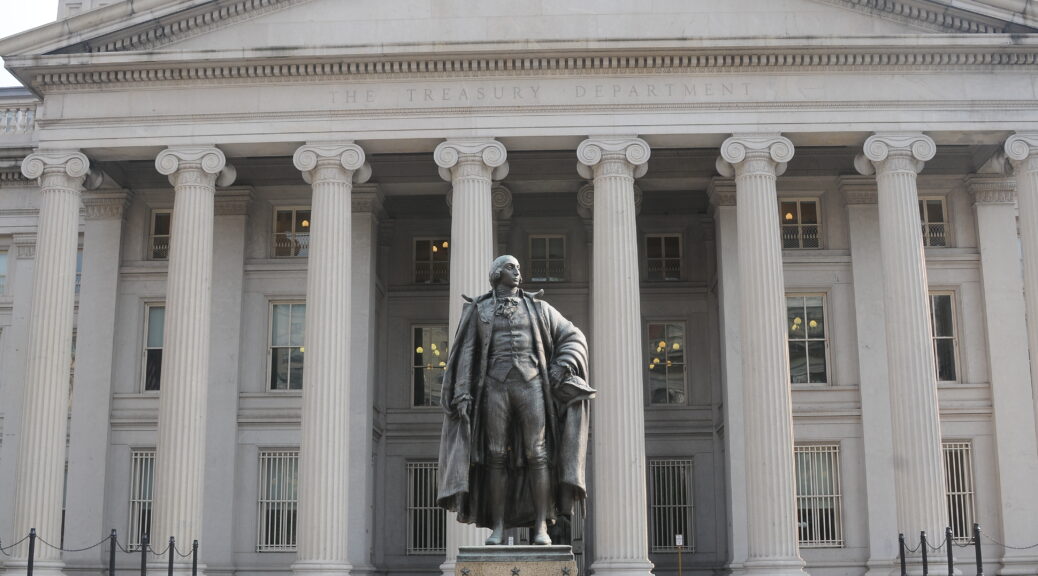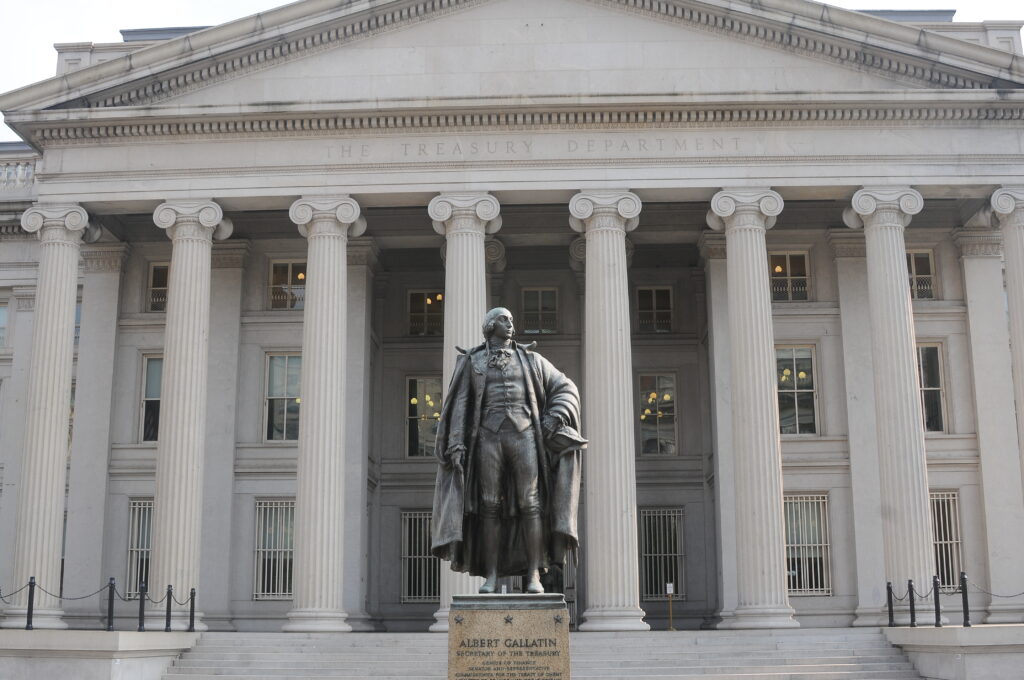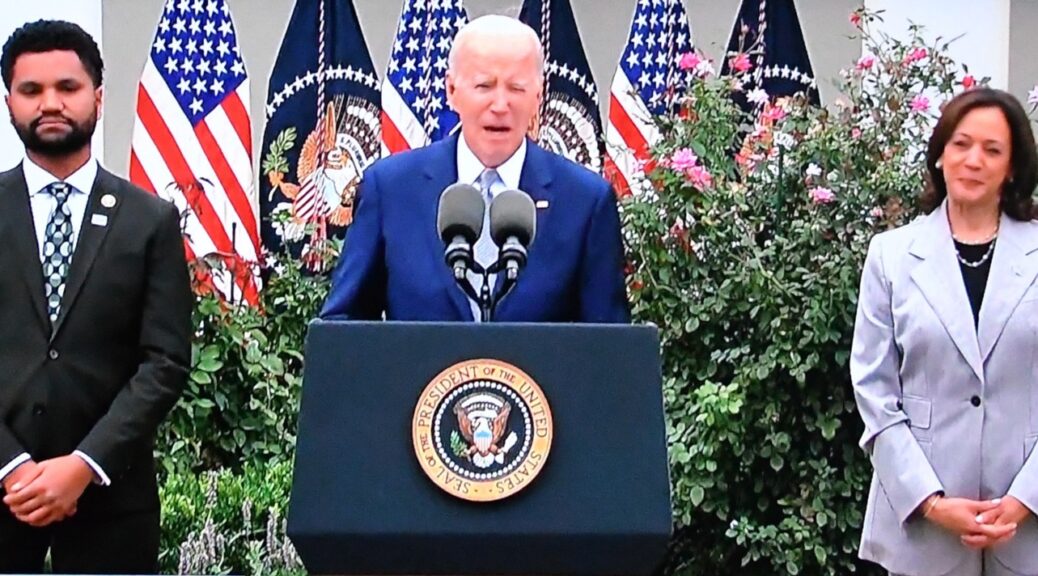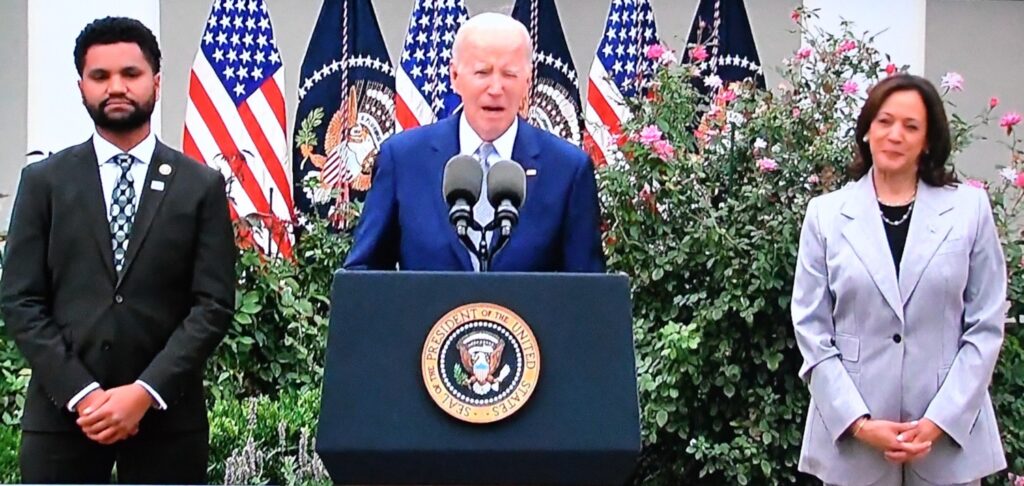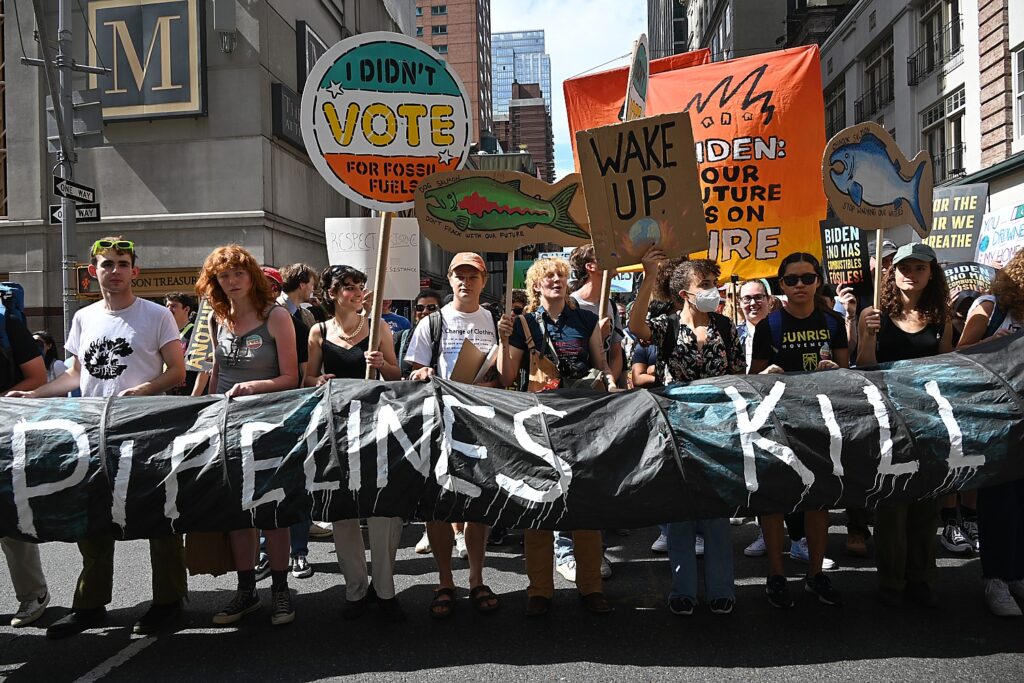
Amid record rates of antisemitism and hate crimes – given added fuel with the Israel-Hamas war – for the first time, eight federal agencies make clear that a key civil rights protection prohibits certain forms of antisemitism; actions are major deliverable in implementing the President’s National Strategy to Counter Antisemitism.
According to an Oct. 7 analysis by the Anti-Defamation League (ADL), the instances of antisemitic rhetoric and calls for violence against Jews social media greatly increased following Hamas’ sneak attack on Israel earlier that day which killed more than 1,200 Israelis and resulted in hundreds more being taken hostage. On platforms favored by white supremacist extremists, however, hateful and violent rhetoric targeting Jews increased by 488 percent, the ADL said. New York State, New York City, and Long Island, home to the largest population of Jews outside of Israel, have had to step up police protection.
New York State Governor Kathy Hochul led a bipartisan coalition of 17 governors to stand in solidarity with Israel, issuing a joint letter to federal leaders to express the broad support for Israel and condemnation of terror attacks from Hamas on October 17. The governors also reaffirmed their commitment to work with the U.S. Department of State to ensure the safe return of Americans.
“The bonds between America and Israel are unbreakable – now and forever,” Governor Hochul said. “As the Governor of the largest Jewish population outside Israel, I recognize we have a unique and solemn responsibility to support Israel during this critical moment. I’m proud to stand with my fellow Governors to show our support for Israel, and grateful to my colleagues for their bold moral leadership.”
The letter reads:
As Governors representing more than 144,000,000 Americans, we stand with Israel and unequivocally condemn the despicable acts of war and terror perpetrated by Hamas on Saturday, October 7, 2023, which have already claimed the lives of hundreds of innocent people in Israel. In the days since these initial attacks, we have joined with members of our communities to mourn and pray, and we have experienced first-hand the deep emotional toll this horrendous evil has taken on so many. We also know that there are several Americans that have already been confirmed killed as a result of this violence, and we know that number is likely to rise in the days ahead.
We stand united in support of Israel in its efforts to secure the safe return of hostages and ensure the ongoing safety of its people. We commend President Biden for his swift response in providing increased military assistance to Israel, and members of Congress from both parties for their firm statements of support for Israel. We urge immediate and continued U.S. aid to Israel in the weeks and months to come. We also urge the Senate to swiftly confirm nominees to key diplomatic roles in the region, including ambassador roles in Israel, Egypt, Lebanon, Oman, and Kuwait as well as move forward with consideration of all pending military nominations and promotions to ensure that our most experienced leaders are occupying the most important jobs for our national defense.
Each of us has taken action in our respective states to increase security in Jewish communities and at Jewish houses of worship. Given these concerns, and the rise of antisemitism across the country, Congress should ensure funding for states and local governments to support activities and programs to ensure resources to safeguard houses of worship and religious-affiliated groups are available to combat antisemitism at home. We will continue to work with federal, state, and local law enforcement to monitor for potential domestic threats and provide support to community leaders as needed.
We stand ready to provide additional support to Israel and to work with the United States Department of State to ensure the safe return of Americans in Israel. Our prayers remain with those who have been lost, their loved ones, the people of Israel, and the Jewish community worldwide.
This fact sheet was provided by the White House on September 28, 2023, more than a week before Hamas massacre of 1400 Israelis in surprise attacks on October 7: As part of President Biden’s National Strategy to Counter Antisemitism, eight federal agencies clarified—for the first time in writing—that Title VI of the Civil Rights Act of 1964 prohibits certain forms of antisemitic, Islamophobic, and related forms of discrimination in federally funded programs and activities. These wide-ranging protections provide important tools to curb discrimination based on shared ancestry or ethnic characteristics and to better protect the civil rights of all Americans.
The Departments of Agriculture, Health and Human Services, Homeland Security, Housing and Urban Development, Interior, Labor, Treasury, and Transportation will also ensure that agency staff understand and are ready to respond to this kind of discrimination, engage with entities that are prohibited from discriminating in these ways to explain their legal responsibilities, and inform communities of their rights to be free from such discrimination and how to file complaints. In addition, the agencies will continue to investigate complaints under Title VI and other civil rights authorities and vigorously enforce protections within federally funded programs and activities they administer. Examples include shielding people from harassment or discrimination on transit systems funded by the Department of Transportation (DOT); in housing funded by the Department of Housing and Urban Development (HUD); or in U.S. Department of Agriculture (USDA)-funded food programs.
Each agency today is clarifying the ways in which Title VI covers discrimination on the basis of shared ancestry or ethnic characteristics, including certain forms of antisemitism, Islamophobia, and related forms of bias and discrimination. These actions were developed with support from the Department of Justice (DOJ) and provide details about how these protections may cover individuals of many different faith traditions, such as people who are Jewish, Muslim, Sikh, Christian, Hindu, or Buddhist. Agency fact sheets are being translated into Yiddish, Hebrew, Arabic, Punjabi, and other languages to ensure that a diverse array of populations can access this vital civil rights information, and additional languages will be available upon request.
Title VI of the 1964 Civil Rights Act applies to all programs and activities supported by federal financial assistance. Thus, these protections are wide-ranging and provide important tools to prevent and curb discrimination. Today’s announcement is a deliverable of President Biden’s National Strategy to Counter Antisemitism, released in May 2023. This strategy represents the most comprehensive and ambitious U.S. government effort to counter antisemitism in American history. It includes over 100 actions the Biden-Harris Administration is taking to address the rise of antisemitism in the U.S. Since the release of the strategy, agencies have taken dozens of actions. Highlights include:
• The Department of Homeland Security (DHS) and Department of Justice (DOJ) published a resource guide for houses of worship and other faith-based institutions to increase security while sustaining an open and welcoming environment.
• DHS has held listening sessions nationwide with communities impacted by targeted violence to better understand evolving threats and address their safety and security needs, with an emphasis on underserved communities. These sessions are ongoing and will help improve accessibility and information-sharing of DHS’ resources to meet the needs of those impacted by hate-motivated violence.
• The Department of Education (ED) launched an Antisemitism Awareness Campaign to ensure all students are able to attend schools free of discrimination. To open this campaign, in May, ED issued a Dear Colleague Letter specifically on antisemitism to schools, reminding them of their legal obligation under Title VI. The Department of Education has long detailed how Title VI applies to shared ancestry and ethnic characteristics in the educational setting. To further these crucial efforts to counter antisemitism, today, ED will launch the first of several Fall site visits to address and learn about antisemitism at schools and colleges. Deputy Secretary of Education Cindy Marten will visit the Contemporary Jewish Museum in San Francisco to engage with students, educators, school administrators, and community leaders around countering antisemitism. Then, the ED team will join San Francisco Hillel for a closed-door conversation with Jewish students from Bay Area colleges around their experiences of antisemitism on college campuses.
• The Cybersecurity and Infrastructure Security Agency at DHS is expanding security capacity-building services to historically targeted communities, including Jewish communities. This includes sessions on active shooter preparedness; an introduction to bomb threat management; tabletop exercise packages for places of worship, such as synagogues; a training on responding to suspicious behaviors and items; and a workshop held at the White House, in cooperation with the White House and DHS Offices of Faith-Based and Neighborhood Partnerships, on Sept. 28.
• DOJ released updated informational materials about the Religious Land Use and Institutionalized Persons Act (RLUIPA), which provide an overview of the law and DOJ’s enforcement efforts, as well as information about how to identify and report violations. DOJ also announced that it will host a series of outreach events on RLUIPA in 2023 and 2024.
• By the end of September, DOJ will launch the United Against Hate program in all 94 of its U.S. Attorneys’ Offices to strengthen trust between law enforcement and communities that are often the targets of hate, including Jewish communities, teach community members how to identify and report hate crimes and hate incidents. DOJ has already held more than 200 events nationwide.
• DOT, through the Federal Transit Administration, has initiated research to identify the data available at the transit-agency level to better understand the extent to which race, ethnicity, and religion or religious appearance impact assaults on, harassment of, and discrimination against transit riders, including antisemitism. DOT completed interviews at the nine largest transit agencies in the United States and plans to share its findings in a future report.
• The Small Business Administration (SBA) is providing training and resources for small business owners and employees on preventing and responding to antisemitism, Islamophobia, and related forms of hate. For example, SBA is working with the Equal Employment Opportunity Commission (EEOC) to encourage small businesses and employees to report antisemitic and other hate incidents to the proper authorities. SBA will host a webinar to share these resources broadly.
• The EEOC has disseminated materials on nondiscrimination and religious accommodations in the workplace, including a fact sheet to inform employees of their rights when they face antisemitism at work. Since last October, it has held more than 40 outreach and training events at its field offices around the country.
• HUD issued a letter to 200 federally-funded fair housing partners on how to identify and counter antisemitism, Islamophobia, and related forms of bias and discrimination in housing.
• The U.S. Holocaust Memorial Museum (USHMM) will extend its national tour of the Americans and the Holocaust exhibition at public and academic libraries in partnership with the American Library Association. To date, it has reached more than 300,000 visitors at 50 host sites across the country. The tour will continue to an additional 50 libraries in 2024.
• AmeriCorps circulated resources to its grantees and sponsors, who support about 200,000 AmeriCorps members and AmeriCorps Seniors volunteers in nearly 40,000 locations across the country, on ways to help counter antisemitism and hate, and enhance the physical security of religious communities.
• The Department of the Interior (DOI) is distributing new resources on Jewish American heritage through the National Park Service (NPS). Additionally, starting in October, NPS will integrate guidance on stopping or preventing antisemitic behavior in parks into staff trainings. NPS will also add tools on countering antisemitism to bystander intervention and conflict de-escalation trainings that are available to all DOI staff.
• In November, USDA will host a summit in Omaha, Nebraska that will include a diverse group of more than 100 religious leaders from across the country to assess the state of antisemitism, highlight effective strategies to counter antisemitism, and build solidarity across faiths.
• The Department of State and the Special Envoy to Monitor and Combat Antisemitism produced a report documenting existing overseas programs, policies, and actions that counter antisemitism to help inform domestic efforts to counter antisemitism.
• The Department of Health and Human Services (HHS) is providing ongoing trainings on antidiscrimination laws to medical students nationwide. HHS is also holding listening sessions with Jewish and Muslim chaplains on religious discrimination in healthcare settings. These sessions will inform future HHS departmental priorities.
• The National Endowment for the Arts (NEA) will launch its Artists for Understanding and Connecting initiative in October. Through this work, the NEA will raise awareness of the power of the arts to counter antisemitism, Islamophobia and others forms of hate.
• The National Endowment for the Humanities has placed a special call for applications within existing funding opportunities to encourage research and projects on antisemitism and Islamophobia. Additionally, last week, NEH announced $2.8 million in funding in every state and jurisdiction through its United We Stand: Connecting Through Culture initiative for humanities-based programming that counters hate-motivated violence as well as antisemitism, Islamophobia, and related forms of bias and discrimination in the United States.


